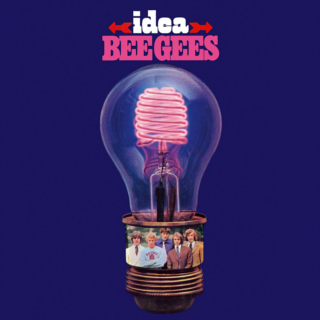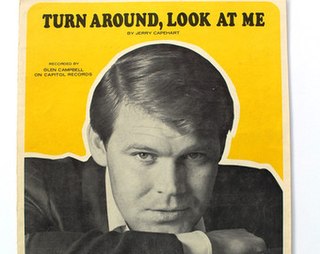Related Research Articles

The Bee Gees were a musical group formed in 1958 by brothers Barry, Robin, and Maurice Gibb. The trio were especially successful in popular music in the late 1960s and early 1970s, and later as prominent performers in the disco music era in the mid-to-late 1970s. The group sang recognisable three-part tight harmonies: Robin's clear vibrato lead vocals were a hallmark of their earlier hits, while Barry's R&B falsetto became their signature sound during the mid-to-late 1970s and 1980s. The group wrote all their own original material, as well as writing and producing several major hits for other artists, and are regarded as one of the most important and influential acts in pop-music history. They have been referred to in the media as The Disco Kings, Britain's First Family of Harmony, and The Kings of Dance Music.

Saturday Night Fever is the soundtrack album from the 1977 film Saturday Night Fever starring John Travolta. The soundtrack was released on November 15, 1977 by RSO Records. Prior to the release of Thriller by Michael Jackson, Saturday Night Fever was the best-selling album in music history, and still ranks among the best-selling soundtrack albums worldwide, with sales figures of over 40 million copies.

Cucumber Castle is the seventh studio album by the Bee Gees, released in April 1970. It was produced by Barry Gibb, Maurice Gibb, and Robert Stigwood. It consists of songs from their television special of the same name, which was named after a song on their 1967 album Bee Gees' 1st. Cucumber Castle is the only Bee Gees album not to feature any recorded contributions from Robin Gibb, as he had left the group before the album was recorded.
Cheryl Lau Sang, known professionally as Samantha Sang, is an Australian singer. She had an earlier career as a teenage singer under the stage name Cheryl Gray, before adopting the stage name she is more widely known as in 1969. She first received nationwide recognition in Australia in 1967, after releasing the top ten single "You Made Me What I Am".

"Nights on Broadway" is a song by the Bee Gees from the Main Course album released in 1975. The second single released from the album, it immediately followed their number-one hit "Jive Talkin'". This track was credited to Barry, Robin and Maurice Gibb.

"Jive Talkin'" is a song by the Bee Gees, released as a single in May 1975 by RSO Records. This was the lead single from the album Main Course. It hit number one on the Billboard Hot 100 and top-five on the UK Singles Chart in the middle of 1975. Largely recognised as the group's comeback song, it was their first US top-10 hit since "How Can You Mend a Broken Heart" (1971).

Horizontal is the fourth studio album by the Bee Gees, and their second album to receive an international release. The LP was released in early 1968, and included the international hit singles "Massachusetts" and "World". On 5 February 2007, Reprise Records reissued Horizontal with both stereo and mono mixes on one disc and a bonus disc of unreleased songs, non-album tracks, and alternate takes. The album was released in Polydor in many countries and on Atco only in the US and Canada. "And the Sun Will Shine" was released as a single only in France. The influences displayed on the album range from the Beatles to baroque pop.

Idea is the fifth album by the Bee Gees. Released in August 1968, the album sold over a million copies worldwide. The album was issued in both mono and stereo pressings in the UK. The artwork on the Polydor release designed by Wolfgang Heilemann featured a "beehive" neon lightbulb with a group photo in its base, while the North American ATCO release designed by Klaus Voormann featured a composite head made from each band member. It was their third internationally released album – the first two albums being released only in the Australian market.

"How Can You Mend a Broken Heart" is a song released by the Bee Gees in 1971. It was written by Barry and Robin Gibb and was the first single on the group's 1971 album Trafalgar. It was their first US No. 1 single and also reached No. 1 in Cashbox magazine for two weeks.

"Heartbreaker" is a song performed by American singer Dionne Warwick. It was written by Barry, Robin and Maurice Gibb of the Bee Gees for her 1982 studio album of the same name, while production was helmed by Barry Gibb, Albhy Galuten and Karl Richardson under their production moniker Gibb-Galuten-Richardson. Barry Gibb's backing vocal is heard on the chorus.

"Turn Around, Look at Me" is a song written by Jerry Capehart and Glen Campbell, though Campbell is not officially credited.

"I Just Want to Be Your Everything" is a song recorded by Andy Gibb, initially released in April 1977 by RSO Records as the first single from his debut album Flowing Rivers (1977). The song was written by Gibb's older brother Barry, and produced by Gibb-Galuten-Richardson. It reached number 1 on the Billboard Hot 100 for three weeks, starting on the week ending 30 July 1977, and again for the week ending 17 September 1977. It was Gibb's first single released in the United Kingdom and United States. His previous single, "Words and Music" was only released in Australia. It is ranked number 26 on Billboard's 55th anniversary All Time Top 100.

"More Than a Woman" is a song by musical group the Bee Gees, written by Barry, Robin, and Maurice Gibb for the soundtrack to the film Saturday Night Fever. It became a regular feature of the group's live sets from 1977 until Maurice Gibb's death in 2003 and was often coupled with "Night Fever".

"Run to Me" is a song by the Bee Gees, the lead single from the group's album To Whom It May Concern (1972). The song reached the UK Top 10 and the US Top 20.

"What Kind of Fool" is a 1981 vocal duet by singers Barbra Streisand and Barry Gibb. The song was written by Gibb and Albhy Galuten. Released as the third single from Streisand's album Guilty (1980), "What Kind of Fool" was the third consecutive top ten single from the album in the United States. "Woman in Love" reached number one on the Billboard Hot 100 chart, and the album's title track reached number three, both in late 1980. "What Kind of Fool" spent three weeks at number ten on the Hot 100 in March and April 1981. It also spent four weeks atop the Billboard adult contemporary chart.
"I Can't See Nobody" is a song by the Bee Gees, released first as the B-side of "New York Mining Disaster 1941". With "New York Mining Disaster 1941", this song was issued as a double A in Germany and Japan, and included on the group's third LP, Bee Gees' 1st. "I Can't See Nobody" charted for one week at number 128 on the Billboard Bubbling Under the Hot 100 in July 1967.

"Fanny (Be Tender with My Love)" is a song written and performed by the Bee Gees for their Main Course album in 1975. It was the third single release from the album, peaking at number 12 on the United States Billboard Hot 100 and number two in Canada. According to Maurice Gibb, producer Quincy Jones called "Fanny" one of his favorite R&B songs of all time.
"Rest Your Love on Me" is a country ballad performed by the Bee Gees and written and sung by Barry Gibb. It was the B-side of the US No. 1 hit "Too Much Heaven". Andy Gibb recorded the song as a duet with Olivia Newton-John for his 1980 album After Dark.
"Come On Over" is a ballad written by Barry and Robin Gibb and recorded by the Bee Gees for their album Main Course, with lead vocals by Robin, joined by Barry in the chorus.. A live version was recorded in Los Angeles during their Children of the World Tour and appeared on their first live album Here at Last...Bee Gees...Live. The song was more reminiscent of their older style as compared to the new R&B sound of "Jive Talkin'" and "Nights on Broadway". It would become a No.1 adult contemporary hit for Olivia Newton-John in 1976.

"(Our Love) Don't Throw It All Away" is a song penned by Barry Gibb and Blue Weaver and recorded by the Bee Gees in 1977 on the Saturday Night Fever sessions but was not released until Bee Gees Greatest (1979). A different version was released in September 1978 by RSO Records as the third single by Andy Gibb from his second studio album Shadow Dancing. His version was produced by Gibb-Galuten-Richardson.
References
- ↑ "www.allmusic.com". allmusic.com. Retrieved June 8, 2023.
- ↑ Gibb Songs 1977
- ↑ Whitburn, Joel (2013). Joel Whitburn's Top Pop Singles, 14th Edition: 1955-2012. Record Research. p. 690.
- 1 2 Kent, David (1993). Australian Chart Book 1970–1992 (illustrated ed.). St Ives, New South Wales: Australian Chart Book. p. 246. ISBN 0-646-11917-6.